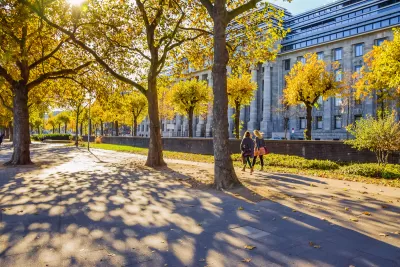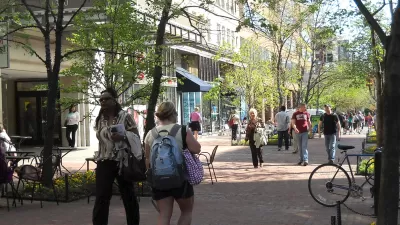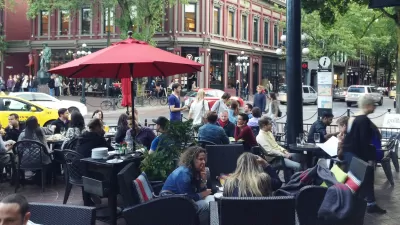With more and more people living in cities, designing equitably healthy urban spaces becomes a key question for policymakers.

“Not all urban areas are created equal, and this can have a big impact on a person’s health. Air quality, heat, food—these are just some of the ways your environment can influence health. Often, it is the poorest areas of a city that have the most negative impact,” writes Rob Reddick in Wired.
Reddick argues that understanding these disparities is increasingly urgent as the world’s urban population is projected to double by 2050. In an interview with Wired, researcher Tolullah Oni describes her research into cities and public health, saying, “I realized we needed to understand the epidemiology of the urban context as the main propagator of diseases.”
As Oni explains, urban planning and design affects everything from air quality to temperature to risk of injury on roadways. For Oni, “Often with developers of public spaces it’s a sin of omission rather than of commission.” In many cases, “What is rarely apparent is what the health cost is, because that cost is born in a different sector and often at a different time.”
Because of the structural scale of the problems, Oni says, “governments have the mandate to ensure health for all. They can’t really absolve any responsibility from that.” Even when development is largely left up to the private sector, “government is responsible also in the legislation holding the private sector accountable.”
FULL STORY: Where You Live Is As Important As What You Eat

Study: Maui’s Plan to Convert Vacation Rentals to Long-Term Housing Could Cause Nearly $1 Billion Economic Loss
The plan would reduce visitor accommodation by 25,% resulting in 1,900 jobs lost.

North Texas Transit Leaders Tout Benefits of TOD for Growing Region
At a summit focused on transit-oriented development, policymakers discussed how North Texas’ expanded light rail system can serve as a tool for economic growth.

Using Old Oil and Gas Wells for Green Energy Storage
Penn State researchers have found that repurposing abandoned oil and gas wells for geothermal-assisted compressed-air energy storage can boost efficiency, reduce environmental risks, and support clean energy and job transitions.

Private Donations Propel Early Restoration of Palisades Playground
Los Angeles has secured over $1.3 million in private funding to restore the Pacific Palisades playground months ahead of schedule, creating a modern, accessible space that supports community healing after recent wildfires.

From Blight to Benefit: Early Results From California’s Equitable Cleanup Program
The Equitable Community Revitalization Grant (ECRG) program is reshaping brownfield redevelopment by prioritizing projects in low-income and environmental justice communities, emphasizing equity, transparency, and community benefits.

Planting Relief: Tackling Las Vegas Heat One Tree at a Time
Nevada Plants, a Las Vegas-based nonprofit, is combating the city’s extreme urban heat by giving away trees to residents in underserved neighborhoods, promoting shade, sustainability, and community health.
Urban Design for Planners 1: Software Tools
This six-course series explores essential urban design concepts using open source software and equips planners with the tools they need to participate fully in the urban design process.
Planning for Universal Design
Learn the tools for implementing Universal Design in planning regulations.
Ascent Environmental
Borough of Carlisle
Institute for Housing and Urban Development Studies (IHS)
City of Grandview
Harvard GSD Executive Education
Toledo-Lucas County Plan Commissions
Salt Lake City
NYU Wagner Graduate School of Public Service





























